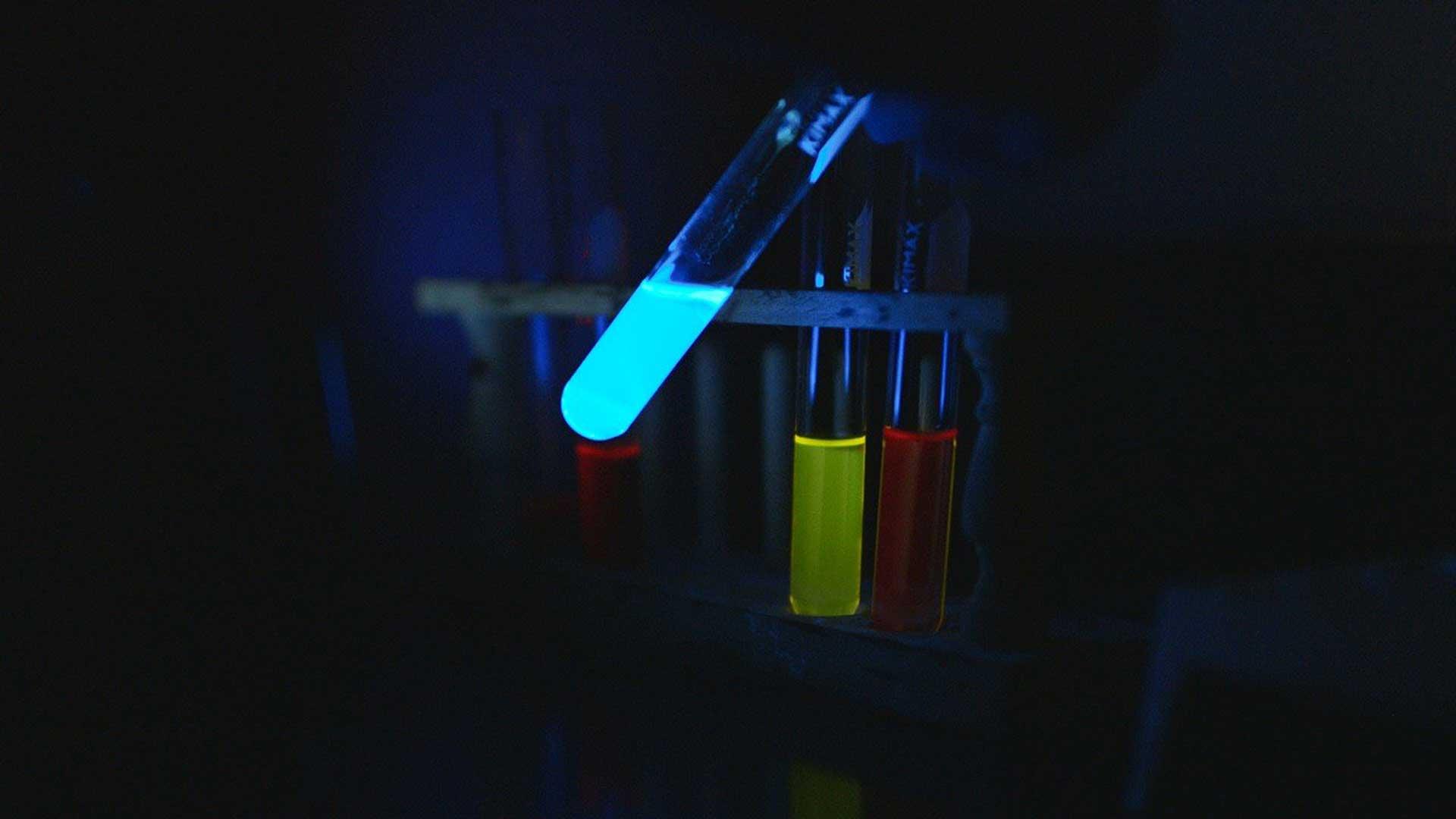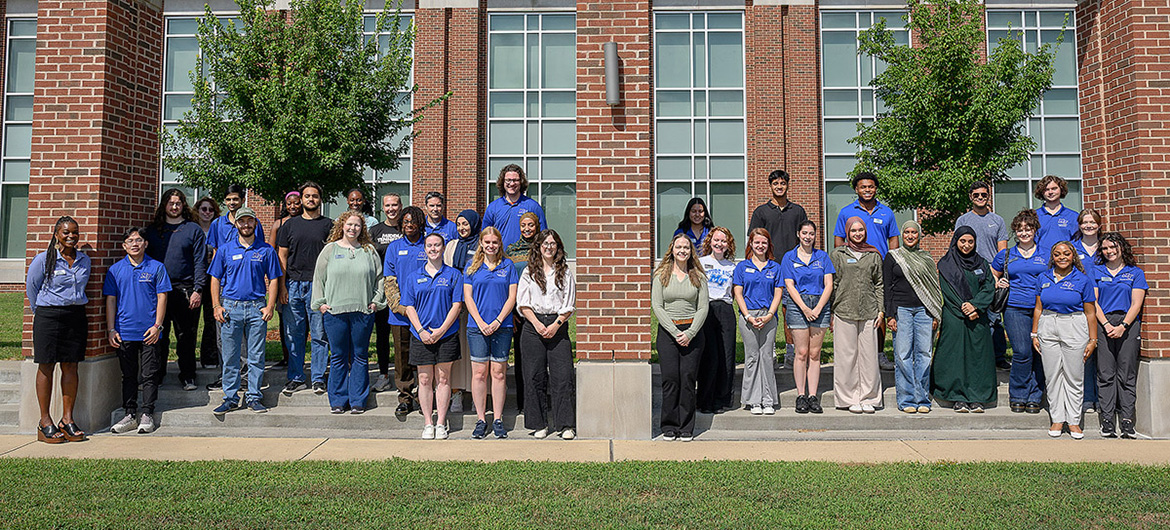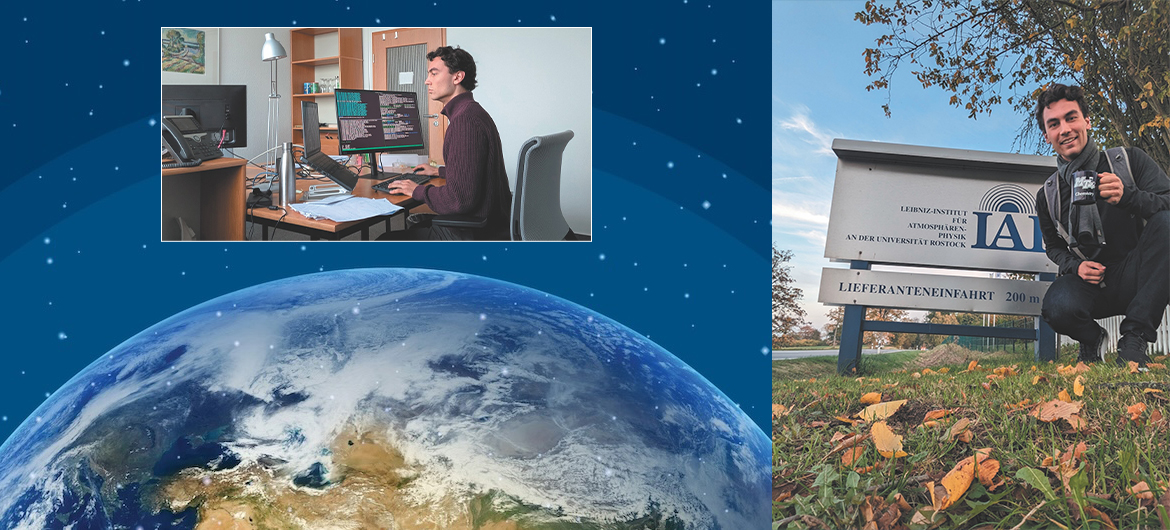
Chemistry
Solve global challenges like climate change, disease, and clean energy. Get a strong foundation and diverse career opportunities.
Chemistry, B.S.
Chemistry is central to many scientific fields of study and chemists are involved in solving in the world's greatest challenges such as climate change, disease, and clean energy. At MTSU, you'll build a strong background in the traditional areas of chemistry—analytical, biochemistry, inorganic, organic, and physical chemistry along with mentored research and internship courses, and plenty of electives to choose from, such as computational, environmental, medicinal, and polymer chemistry. A Chemistry degree prepares students to think critically and creatively as effective problem solvers. Graduates can continue on to graduate or professional school or find immediate employment in a wide variety of high-demand fields, including health professions (e.g.medical, dental, pharmacy); environmental, polymer, or pharmaceutical industry; or teaching.
News Briefs

MTSU STEM professors land $50K to fund peer learning support initiative, increase student success
Middle Tennessee State University is helping students succeed in first-year STEM courses with one of its most abundant and effective resources — their fellow Blue Raiders.[ Read More ]

An Atmosphere of Change
MTSU Honors alumnus Jared Frazier launches career abroad to impact weather and climate research[ Read More ]
News Briefs

MTSU STEM professors land $50K to fund peer learning support initiative, increase student success
Middle Tennessee State University is helping students succeed in first-year STEM courses with one of its most abundant and effective resources — their fellow Blue Raiders.[ Read More ]

An Atmosphere of Change
MTSU Honors alumnus Jared Frazier launches career abroad to impact weather and climate research[ Read More ]
Related Media

Chemistry, B.S.
A chemistry degree prepares students for any number of careers, many of which do not necessarily involve lab coats and flasks. Examples include
- Agricultural scientist
- College professor
- Crime lab analyst
- Environmental health specialist
- Food scientist technician
- Forensic chemist
- Hydrologist
- Industrial hygienist
- Pharmaceutical sales representative
- Product tester
- Quality assurance manager
- Science lab technician
- Toxicologist
- Water purification chemist
Employers of MTSU chemistry degree alumni include
- Aegis Sciences
- Baxter BioScience
- Belcher Pharmaceuticals
- Case Western Reserve University School of Medicine
- Federal Bureau of Investigation
- Liquidia Technologies
- Merck Pharmaceutical
- Pfizer
- Specialized Assays
- St. Jude Children's Hospital
- TBI Crime Laboratory
- University Hospitals
- Vanderbilt University

MTSU’s Career Development Center
MTSU offers a comprehensive Career Development Center that serves students throughout the full student experience and beyond. They collaborate with faculty and staff to equip students with the tools to be marketable to the world of work and continuing education.
Students can schedule an appointment or check online resources and job boards at mtsu.edu/career.
Students can find current internship opportunities by talking to faculty and visiting the University job and internship board called Handshake.
Wondering what you can do with your major? Check out our What Can I Do with A Major In guides.



A study of the composition and properties of matter, chemistry exists at the crossroads of geology, physics, and biology. That makes a chemistry degree a natural choice for any student who possesses a general love of science—pretty much wherever you look, there's chemistry to be done! Study at MTSU includes traditional areas—analytical, biochemistry, organic, inorganic, and physical—as well as computational, polymer, medicinal, and environmental chemistry.
Professional Licensure Disclosure
MTSU discloses that the Bachelor of Science (BS) in Chemistry, Teacher Licensure is a teacher licensure preparation program accredited by the Council for the Accreditation of Educator Preparation (CAEP) and approved by the Tennessee Department of Education. Admission to an undergraduate teacher licensure preparation program does not guarantee that students will obtain a teacher license. Successful completion of the meets the educational requirements to apply for a practitioner teacher licensure in Tennessee.
The BS Chemistry, Teacher Licensure disclosure provided on MTSU’s professional licensure disclosure website indicates the states and territories where MTSU has determined, through reasonable and good faith effort, that the program does or does not meet the educational requirements for other US states and territories. Licensing authorities for each state set and enforce their own requirements and standards, which are subject to change. Current and prospective students not located in Tennessee or who plan to seek licensure or certification outside the state of Tennessee should contact the appropriate state licensing agency or board and discuss their plans with an advisor and the MTSU Office of Teacher Licensure before enrolling in the program to ensure they have the most up-to-date information and guidance regarding licensure requirements.

CONTACT US











